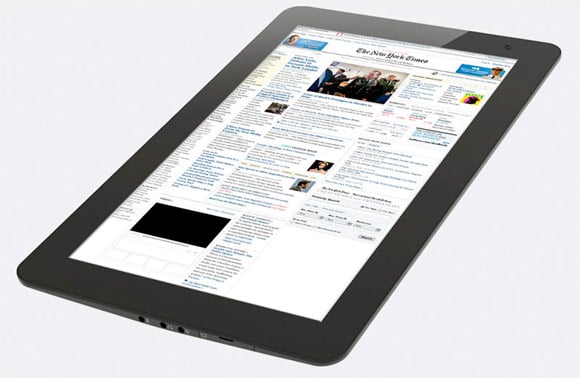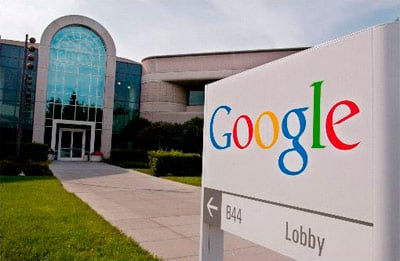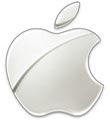Tuesday, November 30, 2010
The Government has achieved passage of the Telstra split bill with Senate amendments in the lower house after the Opposition decided not to dispute a final vote.
The passing of the bill capped a mornign of failed attempts by the Coalition to by seeking a suspension of standing orders and introducing new sections to the bill to force a cost-benefit analysis on the NBN.
Both were turned down in divisions – where members were separated on either side of the chamber to vote on the motions.
Click here to read more
Cyber attacks on WikiLeaks were intensifying as world leaders continued to grapple with the fallout of the whistleblower site's initial release of what will become hundreds of thousands of confidential US diplomatic cables.
On Tuesday WikiLeaks came under a second, much more powerful distributed denial of service (DDoS) attack launched against both ith Cablegate page and its home page, Wikileaks.org.
Click here to read more
Thursday, October 28, 2010
 The National Broadband Network last night received votes of confidence from a school, university, pediatrician, patient and rural resident in a televised debate - but the reaction of a resident in a Tasmanian first-release site showed how far the Government has to go to bridge dividing public opinion on the network.
The National Broadband Network last night received votes of confidence from a school, university, pediatrician, patient and rural resident in a televised debate - but the reaction of a resident in a Tasmanian first-release site showed how far the Government has to go to bridge dividing public opinion on the network.After a relatively dark couple of weeks for the National Broadband Network - turned into a political football by the Opposition and hounded by sections of the press - the network positively basked in the lights cast by apparent supporters who could see applications that would benefit from a high-speed national internet infrastructure.
Click here to read more
Tuesday, October 12, 2010
 The price of mobile plans bundled with the Apple iPhone appear destined to rise, as Apple steadfastly refuses to bow to industry pressure to allow its telco partners to offer repair services for the device.
The price of mobile plans bundled with the Apple iPhone appear destined to rise, as Apple steadfastly refuses to bow to industry pressure to allow its telco partners to offer repair services for the device. The Australian Consumer and Competition Commission (ACCC) announced late last week that it had struck an agreement with Telstra to ensure that devices sold on 24-month plans included warranties for 24-months - 12 months more than the standard warranty offered by most device manufacturers.
But, like the undertaking struck with VHA in May, the ACCC's deal with Telstra applied to all handsets except the Apple iPhone.
Click here to read more
 NBN Co plans to hand a revised three-year rollout plan that incorporates long-awaited wholesale pricing to the Federal Government by the end of the month, according to chief executive Mike Quigley.
NBN Co plans to hand a revised three-year rollout plan that incorporates long-awaited wholesale pricing to the Federal Government by the end of the month, according to chief executive Mike Quigley.Speaking at the "CommsDay" Summit in Melbourne to a standing room-only crowd, Quigley said that the costs of the revamped plan were no higher than had been originally envisaged for the NBN and that the Government enterprise was funded at least "until the end of the year and beyond".
Click here to read more
T
 asmania plans to create laws that would put the onus on residents to "opt out" of receiving a fibre-to-the-premises connection under the Federal Government's National Broadband Network (NBN) plan.
asmania plans to create laws that would put the onus on residents to "opt out" of receiving a fibre-to-the-premises connection under the Federal Government's National Broadband Network (NBN) plan.
To date, the Tasmanian NBN roll-out used the "opt-in" model used by NBN Co in other areas of Australia, where residents had to sign and return consent forms for a fibre connection into their house.
Optus took aim at months of "ill-informed debate" over wireless and fibre infrastructure, criticising policy makers and sections of the telecommunications industry alike for their "collective amnesia" when shaping Australia's broadband future.
In a significant deviation from the CommsDay Summit script - which had so far steered clear of controversy and focused mostly on future applications - Optus director of government and corporate affairs Maha Krishnapillai took aim at NBN critics who he accused of failing to learn from the past.
Click here to read more
It was just two years ago that Microsoft’s Internet Explorer web browser controlled 67 percent of the worldwide market, according to data from web analytics company "StatCounter". It has been all downhill from there.

According to the the latest data from the company, last month, September 2010, marked the first time IE fell below the 50 percent share mark in the past decade. Of course, this data only counts what StatCounter collects, but they claim that it’s a huge dataset worldwide — billions of visits from millions of sites. And the trend is clear: two years ago, two-thirds of those people were browsing the web with IE, now less than half of them are.
Click here to read more
Sunday, October 3, 2010
 Telstra will trial a retail broadband service on the Tasmanian NBN for three months starting next month.
Telstra will trial a retail broadband service on the Tasmanian NBN for three months starting next month. The incumbent was seeking about 100 existing Telstra customers living in Midway Point, Scottsdale and Smithton to participate.
Click here to read more
 A team from the UK’s Centre for Quantum Photonics may have stumbled onto something remarkable. Something that may transform quantum computing from a pipe dream into reality.
A team from the UK’s Centre for Quantum Photonics may have stumbled onto something remarkable. Something that may transform quantum computing from a pipe dream into reality.Jeremy O’Brien, who is the Centre's director, recently led a project that ended with the creation of a new photonic chip that "works on light rather than electricity.
Click here to read more
Thursday, July 15, 2010
 Leading up to Apple's press conference’s tomorrow, there’s been endless speculation about the iPhone 4 antenna issue. Amidst all the wrangling, both sides have been pretty bipolar about the solution—suggesting either a complete recall, or a hand-waiving session, free bumpers, and a general denial of the hardware issue.
Leading up to Apple's press conference’s tomorrow, there’s been endless speculation about the iPhone 4 antenna issue. Amidst all the wrangling, both sides have been pretty bipolar about the solution—suggesting either a complete recall, or a hand-waiving session, free bumpers, and a general denial of the hardware issue.The best solution lies in between both of those extremes: a full admission of the hardware issue, together with a voluntary recall and an immediate manufacturing fix.
Click here to read more
 Apple chief executive Steve Jobs was made aware of possible problems with the antenna on the new iPhone 4 before its launch, according to reports.
Apple chief executive Steve Jobs was made aware of possible problems with the antenna on the new iPhone 4 before its launch, according to reports.The company's senior antenna expert, Ruben Caballero, told Jobs during design testing for the device that there could be issues with the antenna that might cause calls to be dropped, said a Bloomberg report citing "a person familiar with the matter".
The report also claimed that a carrier partner had raised concerns about the antenna before the release, according to another person "familiar with the situation".
V3.co.uk contacted Apple for comment on the reports, but had not received a reply at the time of publication.
Click here to read more
C
 hina's Ministry of Industry and Information Technology has renewed the Chinese operating licence of U.S. Internet giant Google.
hina's Ministry of Industry and Information Technology has renewed the Chinese operating licence of U.S. Internet giant Google.Guxiang, a company that operates Google's websites in China, was included in a list of more than 200 companies that had their licences renewed, which was posted on the ministry's website (www.miit.gov.cn).
The document said that the company received approval after "making improvements", but gave no further details.
Click here to read more
Tuesday, July 6, 2010
 You may assume that you have no real reason to thank Finland today, but you do. If you're an avid Internet user, you owe the first nation to make broadband service a basic right a great deal of gratitude, because without them being first, there's no telling how long it would've taken for some other country to finally pull the trigger.
You may assume that you have no real reason to thank Finland today, but you do. If you're an avid Internet user, you owe the first nation to make broadband service a basic right a great deal of gratitude, because without them being first, there's no telling how long it would've taken for some other country to finally pull the trigger.That's right: while Countries around the world try to figure out how to get broadband into rural areas, Finland is moving forward with a far bolder plan that involves giving broadband access to every single citizen.
Click here to read more
 Researchers at the Australian National University claim to have slowed light "all the way to a stop" in a cooled, rare-earth crystal that could serve as data storage in future quantum communications.
Researchers at the Australian National University claim to have slowed light "all the way to a stop" in a cooled, rare-earth crystal that could serve as data storage in future quantum communications.
Using the crystal, which was surrounded in a magnetic field and cooled to -270 degrees Celsius, the researchers "stored" laser light for up to three microseconds with 69 percent efficiency.
This was no small feat, according to lead researcher Morgan Hedges, who noted that light normally would have traveled almost a kilometer in that time.
Click here to read more
Wednesday, June 30, 2010
 Google is tweaking its China website in a last-ditch effort to save its search business in the world's largest Internet market after butting heads with Beijing over Web censorship.
Google is tweaking its China website in a last-ditch effort to save its search business in the world's largest Internet market after butting heads with Beijing over Web censorship.The move comes ahead of a Wednesday deadline for China to renew Google's operating license. Google said Beijing had made it clear it was unhappy with the company's three-month old system of re-routing Chinese Web surfers to google.com.hk.
Click here to read more
 Senator Stephen Conroy has survived a cabinet reshuffle from newly crowned Prime Minister Julia Gillard, retaining his role as the Minister for Broadband, Communications and the Digital Economy.
Senator Stephen Conroy has survived a cabinet reshuffle from newly crowned Prime Minister Julia Gillard, retaining his role as the Minister for Broadband, Communications and the Digital Economy.Gillard revealed details of her new ministry at a lunchtime press conference today, noting that she had made "limited changes" in order to achieve "maximum stability in the team".
Click here to read more
 Nearly everyone has something to say about BP’s oil spill, and from a public relations perspective, the company is floundering. Both its stock price and brand value have taken a deepwater dive, and it is struggling to make its own voice heard.
Nearly everyone has something to say about BP’s oil spill, and from a public relations perspective, the company is floundering. Both its stock price and brand value have taken a deepwater dive, and it is struggling to make its own voice heard.When you Google "BP PR" or "BP public relations the top organic result is @BPGlobalPR, a parody account on Twitter with more than 175,000 followers.
In contrast, BP’s official account, @BP_America, has only 15,000 followers. The satirical @BPGlobalPR is dominating the online conversation. It is an object lesson in how social media can shape and control a company’s message during a crisis...
Click here to read more
 Did Apple really not know about the problems with the iPhone 4's Antenna system which, particularly when the device is held with skin touching the bottom left of the steel antenna surrounding its case, can cause signal degradation and even dropped calls?
Did Apple really not know about the problems with the iPhone 4's Antenna system which, particularly when the device is held with skin touching the bottom left of the steel antenna surrounding its case, can cause signal degradation and even dropped calls?It's possible, and it's possible that its own paranoia, as well as its BFF, AT&T, are at fault.
Click here to read more
 Between the iPad’s blocking of Flash earlier this year and the huge wave of ad campaigns, open letters, and debates that followed, it seems that everyone has an opinion on the merits (or lack thereof) of Flash on the modern web.
Between the iPad’s blocking of Flash earlier this year and the huge wave of ad campaigns, open letters, and debates that followed, it seems that everyone has an opinion on the merits (or lack thereof) of Flash on the modern web.YouTube software engineer John Harding took to the site’s official blog to weigh on the current status of HTML5 video support. The gist of it: while HTML5 is great, it can’t do everything YouTube (or most mainstream video sites) need.
Click here to read more
Wednesday, June 16, 2010
 This morning, news broke of a spiffy, and very powerful new feature on YouTube: a built-in video editor.
This morning, news broke of a spiffy, and very powerful new feature on YouTube: a built-in video editor.The JavaScript-based YouTube editor isn’t loaded with bells and whistles, but it can handle the basics just fine: it’s easy to trim and splice together the video clips that you’ve uploaded, and you can replace your video’s audio with any of YouTube’s library of 40,000 approved songs (you can’t upload your own audio yet, but YouTube is working on deals to make that happen).
Click here to read more
 The media coverage surrounding Apple iPhone 4 pre-order inventory levels has been almost as crazed as, well, the whole pre-order frenzy. Not unpredictable for a new Apple product release -- and particularly a new iPhone design -- it didn't take long for the Cupertino company to exhaust its supply of devices for day-of-release shipments.
The media coverage surrounding Apple iPhone 4 pre-order inventory levels has been almost as crazed as, well, the whole pre-order frenzy. Not unpredictable for a new Apple product release -- and particularly a new iPhone design -- it didn't take long for the Cupertino company to exhaust its supply of devices for day-of-release shipments.It's true that both AT&T and Apple have depleted their pre-order allotment, but according to Apple's website, new orders for both the 16GB and 32GB models will ship by July 2nd. That's a week and one day longer than the original ship date, which was previously listed as June 24.
Click here to read more
 Almost half of all Tasmanian premises in NBN's stage one zones have signed up to fibre services that will launch in "a few short weeks", according to Communications Minister Stephen Conroy.
Almost half of all Tasmanian premises in NBN's stage one zones have signed up to fibre services that will launch in "a few short weeks", according to Communications Minister Stephen Conroy.
Addressing the Senate this afternoon, Conroy described a "huge amount of enthusiasm" in the community for stage one NBN services.
"The rollout in Tasmania is now well underway," Conroy told Parliament. "We are on track to deliver the first of these [NBN] services in a few short weeks."
Click here to read more Communications Minister Stephen Conroy has lashed out at opposition to the Federal Government's bid to filter the internet, and labelled those promoting the dissent as "dishonest".
Communications Minister Stephen Conroy has lashed out at opposition to the Federal Government's bid to filter the internet, and labelled those promoting the dissent as "dishonest".He described claims the internet speeds would be slowed by as much as 87 per cent were "wild" and said the government's intentions were misrepresented by opponents.
"This has been a campaign quite dishonest in the way that it has talked about how speeds will be impacted," Mr Conroy said.
Click here to read more.
Thursday, June 3, 2010
 A Pakistani court on Monday lifted a ban on social networking website Facebook which had carried a competition to draw the Prophet Mohammad, but access to any "blasphemous" material will remain blocked, officials said.
A Pakistani court on Monday lifted a ban on social networking website Facebook which had carried a competition to draw the Prophet Mohammad, but access to any "blasphemous" material will remain blocked, officials said.Any representation of the Prophet Mohammad is deemed un-Islamic and blasphemous by Muslims, which constitute the overwhelming majority in Pakistan, and Facebook was blocked two weeks ago because of the online caricature contest.
Click here to read more
 According to a new report, Chandra Rathakrishna (creator of the JooJoo), recently had a few choice words about the iPad, and while sales would obviously say otherwise, there's nothing like a little bitterness to chuckle over on a holiday.
According to a new report, Chandra Rathakrishna (creator of the JooJoo), recently had a few choice words about the iPad, and while sales would obviously say otherwise, there's nothing like a little bitterness to chuckle over on a holiday.Here's his quotes on Apple's first tablet:
"JooJoo delivers the entire Internet - including Flash-based websites. That means you can play full versions of games, watch full-screen HD video and not have to be constrained within the 'walled garden' of the iPad environment. [The iPad is just] another storage device with web capabilities."
Click here to read more
 ISP iiNet issued a press release late yesterday to reassure customers and the industry that it does not support Senator Conroy's plans to filter the internet, refuting comments the Senator made in a Sydney Morning Herald article.
ISP iiNet issued a press release late yesterday to reassure customers and the industry that it does not support Senator Conroy's plans to filter the internet, refuting comments the Senator made in a Sydney Morning Herald article. Senator Conroy had claimed his policy has been "approved by 85 per cent of Australian internet service providers, who have said they would welcome the filter, including Telstra, Optus, iPrimus and iiNet."
Michael Malone, CEO of iiNet, was outraged."Any claim that our participation in that consultation process is support for the Government's policy is an outright lie," he said in a statement.
Click here to read more
Foxconn thinks they have a solution to the mounting suicides that have rocked the company's China operations: pay the workers more money. According to reports, Foxconn plans to raise wages by 30 percent, which still isn't all that much, but it's a start. One report has the basic salary at Foxconn's China plants at about 900 yuan a month, or just over $130
Foxconn is the biggest supplier of OEM products in the world and builds a number of high-end products, including Apple's iPhones and iPads. But the company has come under heavy fire lately for frequent suicide attempts, most of which were 'successful.'
Click here to read more
 As with most major corporations, Google's employees used Windows-based machines almost exclusively. It's sort of a given when major companies select Windows machines for their staff, so no one really paid it any mind.
As with most major corporations, Google's employees used Windows-based machines almost exclusively. It's sort of a given when major companies select Windows machines for their staff, so no one really paid it any mind.But now, Google is reportedly "phasing out internal use of rival Microsoft Corp's Windows operating system
You're all well aware of the Chinese hacking incident from earlier in the year, which led to Google taking a stand and refusing to filter search results in mainland China. Now, Google is looking to Apple and Linux-based machines to replace their workstations.
Thursday, May 6, 2010
 As the world continues to become more global in scope, knowing various languages is becoming more and more important. That's far easier said than done, and Google knows it. They're on a mission to bridge the language gap as quickly as possible, and while their online translation services works wonders on web pages, adding the service to Goggles is one of the most impressive things yet for mobile.
As the world continues to become more global in scope, knowing various languages is becoming more and more important. That's far easier said than done, and Google knows it. They're on a mission to bridge the language gap as quickly as possible, and while their online translation services works wonders on web pages, adding the service to Goggles is one of the most impressive things yet for mobile.Click here to read more
 A court undertaking between Australia's competition watchdog and VHA, which formed the basis of new rules for mobile carriers around the length of phone warranties, featured one glaring exemption: Apple's iPhone.
A court undertaking between Australia's competition watchdog and VHA, which formed the basis of new rules for mobile carriers around the length of phone warranties, featured one glaring exemption: Apple's iPhone.
The ACCC announced late last month that carriers offering handsets bundled with 24-month service plans would have to provide a warranty for the handset for the full 24-months.
But what was not revealed at the announcement late last month was that VHA had specifically requested Apple's iPhone be made exempt from its enforceable undertaking.
Click here to read more
 The Mac vs. PC debate has been raging for as long as the two have existed in the same market, but if there's one thing you can say for certain about Apple, it's that the company hates to see their image tarnished.
The Mac vs. PC debate has been raging for as long as the two have existed in the same market, but if there's one thing you can say for certain about Apple, it's that the company hates to see their image tarnished.So when Ellen, a famed comedian and talk show host in the U.S., decided to create her own iPhone
Shortly after the spot aired, Apple contacted Ellen's show with a gripe: her spoof made it seem as if the iPhone were difficult to use, which is exactly what Apple doesn't want anyone to think.
Click here to read more
Wednesday, May 5, 2010
 The Federal Government's $23.8m ISP-level internet filtering initiative will not block encrypted content or web applications and can be circumvented legally, Communications Minister Stephen Conroy has admitted.
The Federal Government's $23.8m ISP-level internet filtering initiative will not block encrypted content or web applications and can be circumvented legally, Communications Minister Stephen Conroy has admitted. In an official response to parliamentary questions on notice released yesterday, Senator Conroy said he had attended an hour-long demonstration of filter circumvention on 5 June 2009.
He was shown how to get around the ISP-level filter using free proxy network TOR and Virtual Private Network (VPN) techniques at the Enex Text Lab in Victoria
Click here to read more
 A major security flaw in Facebook has allowed users to see other people's personal information, and once again opened the social networking site to accusations of not securing user data effectively.
A major security flaw in Facebook has allowed users to see other people's personal information, and once again opened the social networking site to accusations of not securing user data effectively.The fault meant that users editing their privacy settings and then using Facebook's 'See how my profile looks to friends' feature were able to see friends' chat boxes and friend requests.
Click here to read more
 My, how the mighty have fallen. It wasn't long ago that Internet Explorer simply dominated the Internet. Everyone used it be default, and no other browser came close in terms of market share
My, how the mighty have fallen. It wasn't long ago that Internet Explorer simply dominated the Internet. Everyone used it be default, and no other browser came close in terms of market shareSince then, a number of worthy competitors have not only hit the market, but gained serious steam. Mozilla's Firefox has become a huge player, and Google's Chrome has grown faster than pretty much any other unconventional Web browser
Click here to read more
 A few weeks after Apple announced its revised programming rules for iPhad devices, Adobe dropped the bombshell that it was abandoning Apple's platform. Up until late April, Adobe had tirelessly pledged Flash support for the iPhone
A few weeks after Apple announced its revised programming rules for iPhad devices, Adobe dropped the bombshell that it was abandoning Apple's platform. Up until late April, Adobe had tirelessly pledged Flash support for the iPhoneApple and Adobe have publicly sparred in the last week and the Flash developer may have deliberately upped the ante. Sources at the FTC revealed today that the regulatory agency is preparing to investigate Apple's developer license to see if it unfairly restricts competition—purportedly at Adobe's request.
Click here to read more
Monday, May 3, 2010
 AFACT is seeking to be exempted from 40 per cent of costs in its trial brought against iiNet, despite Justice Cowdroy's original judgement ordering AFACT to pay all costs.
AFACT is seeking to be exempted from 40 per cent of costs in its trial brought against iiNet, despite Justice Cowdroy's original judgement ordering AFACT to pay all costs. While iiNet was awarded the case, AFACT is citing four separate issues within the trial it claims to have won over iiNet, therefore relinquishing its accountability for these specific costs.
Specifically, the issues cover iiNet's failed Telecommunications Act defence, and its unsuccessful claim that it was protected under section 112E of the Copyright Act.
Click here to read moreU.S. regulators are considering an inquiry into whether Apple violates antitrust law by requiring that its programming tools be used to write applications for the iPad and iPhone, a source familiar with the matter said on Monday.
The news comes amidst a high-profile dustup between Apple and Adobe Systems, which makes the widely used Flash software to provide video and build games.
Click here to read more
 The Federal Government plans to undertake a technical review of its Refused Classification (RC) Content blacklist if and when it reaches 10,000 web addresses.
The Federal Government plans to undertake a technical review of its Refused Classification (RC) Content blacklist if and when it reaches 10,000 web addresses.In an official response to parliamentary questions on notice yesterday, Communications Minister Stephen Conroy said ISP-level filtering of 10,000 URLs would have no discernable impact on network speeds.
He addressed suggestions noted in Enex TestLabs's 2009 Content Filtering Trial Report that 10,000 URLs may be a tipping point for load/performance degradation. At the time of the Enex study, the blacklist contained little over 1,000 URLs.
Click here to read more
 The debate surrounding Adobe's Flash has never been hotter, and as the he-said-she-said rages on, more and more companies are stepping forward to make public their own take. Apple's CEO Steve Jobs
The debate surrounding Adobe's Flash has never been hotter, and as the he-said-she-said rages on, more and more companies are stepping forward to make public their own take. Apple's CEO Steve JobsDean Hachamovitch, the general manager of Internet Explorer
Click here to read more
 Sound the alarm. Wake the neighbors. Grab your guns. It's Adobe versus Apple, and the war is officially under way. As if Apple didn't enough have fighting going on in their backyard already, the company has seemingly picked another one this week with Adobe.
Sound the alarm. Wake the neighbors. Grab your guns. It's Adobe versus Apple, and the war is officially under way. As if Apple didn't enough have fighting going on in their backyard already, the company has seemingly picked another one this week with Adobe.The company responsible for Flash, Photoshop and Premiere has apparently got on Steve Jobs' (Apple CEO) bad side, causing him to lash out in a public note posted today on Apple.com's homepage.
Thursday, April 29, 2010
 Steve Jobs has been on a quest to rid the world of buttons since the original Macintosh debuted sans numeric keypad. In later years, we've seen the G4 Cube (with its touch-sensitive power-on area, as opposed to a physical button), the Apple Pro Mouse (sometimes known as the zero-button mouse), and most recently the iPhone/iPad with their single button.
Steve Jobs has been on a quest to rid the world of buttons since the original Macintosh debuted sans numeric keypad. In later years, we've seen the G4 Cube (with its touch-sensitive power-on area, as opposed to a physical button), the Apple Pro Mouse (sometimes known as the zero-button mouse), and most recently the iPhone/iPad with their single button.If you thought one button was as low as any practical device could go, you were wrong. Apple has filed a patent application, 20100103116, for a "Disappearing Button or slider."
It's an artistic vision that lends itself well to the conceptualisation of some really futuristic gadgets, but fine-tuning the practical function of such an interface could be a nightmare.
Click here to read more
Same story, new week. But this time, Microsoft
This week, the Redmond-based software giant has proudly announced that the mark has been surpassed, with Windows 7 now installed in one of every 10 PCs in the entire world!
Wednesday, April 28, 2010
 Google has taken issue with the name of Queensland liquor comparison startup Groggle, threatening legal action if the company doesn't change its name and withdraw a trademark application.
Google has taken issue with the name of Queensland liquor comparison startup Groggle, threatening legal action if the company doesn't change its name and withdraw a trademark application. The startup has also been told to transfer its web domains to Google and provide "written acknowledgement" that Groggle infringed Google's own registered trademarks.
Groggle founder Cameron Collie told iTnews the company received a cease-and-desist letter from Google lawyers last Thursday.
Click here to read more
 Sony has announced it will cease producing 1.44" drives in March, 2011. Demand for 3.5" drives and disks is larger than you might think—some 12 million disks sold in 2009—but it's time to pull the plug on the ancient standard.
Sony has announced it will cease producing 1.44" drives in March, 2011. Demand for 3.5" drives and disks is larger than you might think—some 12 million disks sold in 2009—but it's time to pull the plug on the ancient standard.Once the workhorse of the computer industry, the floppy disk evolved significantly through the 70s and 80s. When CD-ROM drives and multimedia capabilities arrived in the early 90s, however, pundits began busily predicting the imminent demise of the 3.5" standard while manufacturers poured millions into disk-based product R&D.
As for the 3.5" disk drive, it told both the pundits and the techies to get bent and set about surviving for another twenty years. The humble standard has proven to be a flat, rectangular, and tiny Jason VoorheesClick here to read more
 Apple iPad users are being warned of an email-borne threat which could give hackers unauthorised access to the device.
Apple iPad users are being warned of an email-borne threat which could give hackers unauthorised access to the device.Sabina Datcu, technology writer for anti-virus firm BitDefender, wrote in a blog post today that the threat arrives via an unsolicited email urging the recipient to download the latest version of iTunes as a prelude to updating their iPad software.
"A direct link to the download location is conveniently provided. As a proof of cyber crime finesse, the web page the users are directed to is a perfect imitation of the one they would use for legitimate iTunes software downloads," Datcu said.
Click here to read more
Monday, April 26, 2010
 On April 25, editor Jason Chen arrived home to discover police in the process of executing a search warrant. Chen demanded to see the warrant, which authorized police to seize every computing or computer-related device in his home including keyboards, mice, floppy disks, and anything that could possibly have anything to do with a device manufactured after 1865.
On April 25, editor Jason Chen arrived home to discover police in the process of executing a search warrant. Chen demanded to see the warrant, which authorized police to seize every computing or computer-related device in his home including keyboards, mice, floppy disks, and anything that could possibly have anything to do with a device manufactured after 1865.When the details of the iPhone 4G went live online, it was immediately a question of when Apple would respond, not if. In the recent past, Apple forced the closure of the longtime Apple enthusiast website ThinkSecret over the websites' (accurate) claim that the Cupertino-based company would reveal iWork and the Mac Mini
Click here to read more...
Thursday, April 22, 2010
 Net Neutrality. Censorship. Freedom of speech. Global search. All of these items are becoming more and more visible in an interconnected world, and we suspect that these issues will become even more important as the Internet spreads. Recently,Google brought some of these matters into the mainstream light by taking on Chine
Net Neutrality. Censorship. Freedom of speech. Global search. All of these items are becoming more and more visible in an interconnected world, and we suspect that these issues will become even more important as the Internet spreads. Recently,Google brought some of these matters into the mainstream light by taking on ChineThis week, Google has opened another can of worms. The new Government Requests Tool is quite the eye-opener, giving mere citizens the ability to see how many times a given government has requested information and how often they have asked the company to remove content from their sites or search index for reasons outside of copyright violations.
Click here to read more...
Monday, April 19, 2010
 You can bet that someone, somewhere, is a very unhappy ex-Apple employee now that one of the company's prototype next-generation iPhones
You can bet that someone, somewhere, is a very unhappy ex-Apple employee now that one of the company's prototype next-generation iPhonesWhoever found the device (they're understandably laying low) turned it over to Gizmodo, which has spent a significant chunk of time disassembling the device, snapping photos, comparing its internal components to current-generation Apple iPhones, and documenting the various changes
Unfortunately, Apple killed the iPhone with a remote update, but Gizmodo has videos and a number of comparison photos available.
Click Here to read more
Investigative reports now indicate that the school either lied through its teeth about the degree to which cameras were activated or was negligent—possibly criminally negligent—in exercising appropriate oversight of how the system was being used by the staff who had access.
Late last week, the Robbins' attourney filed a brief claiming that the school district snapped thousands of photos that documented all aspects of their lives, including the chat rooms and websites they frequented, their IM conversations, etc..
Click Here to read more...
 The ABC's Four Corners program has aired an investigation in which it claimed that the IT systems of Rio Tinto, BHP Billiton and Fortescue Metals were all hacked in attacks originating in China in the lead up to the sentencing of former Rio Tinto mining executive, Stern Hu.
The ABC's Four Corners program has aired an investigation in which it claimed that the IT systems of Rio Tinto, BHP Billiton and Fortescue Metals were all hacked in attacks originating in China in the lead up to the sentencing of former Rio Tinto mining executive, Stern Hu. In a documentary titled 'Chinese Whispers' - aired last night by journalist Marian Wilkinson - sources from within all three iron ore companies claimed that their IT systems were hacked, none willing to go on the record.
All three companies were alleged to have upgraded IT security in response to the attacks.
Click Here to read moreThursday, April 15, 2010
Google is now using site speed as a consideration when ranking sites in its search results, giving webmasters yet more food for thought.
Singhal and Cutts recommended several tools webmasters can use to evaluate the speed of their sites. These include open source Firefox/Firebug add-on Page Speed, Yahoo tool YSlow, and a Google function in its Webmaster Tools section.
However, the web giant did concede that site speed will not be taken into consideration as much as, say, relevance, when evaluating the search rankings of a particular site.
Click here to read more
Tuesday, March 30, 2010
 Communications Minister Stephen Conroy has rejected suggestions from ALP colleague Senator Kate Lundy that the Government offer an ''opt-out' for its plan for a mandatory ISP-level filter.
Communications Minister Stephen Conroy has rejected suggestions from ALP colleague Senator Kate Lundy that the Government offer an ''opt-out' for its plan for a mandatory ISP-level filter.
On the eve of the introduction of filtering legislation to parliament, Senator Conroy appeared on the 'Australia Talks' program on Radio National last night to battle an almost universal condemnation of the filtering scheme.
Click here to read more
 Victorinox is a brand you may have heard your dad or grandfather speak of, and if you're someone who associates closely with the outdoors, you may actually own one of their products. If we said "Swiss Army knife," you'd know immediately what we were talking about, and sure enough Victorinox is the parent company that makes those knives.
Victorinox is a brand you may have heard your dad or grandfather speak of, and if you're someone who associates closely with the outdoors, you may actually own one of their products. If we said "Swiss Army knife," you'd know immediately what we were talking about, and sure enough Victorinox is the parent company that makes those knives.In an effort to bring their latest knife into the current century in terms of relevance, they held an event in their European flagship store on London’s New Bond Street. The reason was to unveil something with a bit of old school flair and a bit of new school utility
Click here to read more
Thursday, March 25, 2010
 Google rolled out a new security feature for Gmail that can alert you when it thinks someone else may be using your account. By using the IP tracking feature that Google launched in July 2008, the new security feature will display a warning if it detects that your account has been accessed from two different geographic regions within a short timeframe.
Google rolled out a new security feature for Gmail that can alert you when it thinks someone else may be using your account. By using the IP tracking feature that Google launched in July 2008, the new security feature will display a warning if it detects that your account has been accessed from two different geographic regions within a short timeframe.Although the new feature isn't remarkably accurate (in the US it only displays which state you are in), it can prove useful if an attack comes from across the country or from overseas.
Click here to read more
 Search giant worried Apps will be blocked
Search giant worried Apps will be blockedGoogle has urged customers of its online applications in China to consider "networking configuration and associated technologies" to ensure ongoing access in the region.
The announcement follows the company's decision earlier this week to stop its censorship of search services on its Chinese domain and reroute all Chinese-simplified language searches from Google.cn to its Google.com.hk Hong Kong site.
Click here to read more
 The United States on Tuesday said Google's action to shut its mainland Chinese-language portal was a business decision by the company that did not involve the U.S. government.
The United States on Tuesday said Google's action to shut its mainland Chinese-language portal was a business decision by the company that did not involve the U.S. government.Google yesterday began rerouting searches to its Hong Kong site, drawing angry criticism from China.
"This was a business decision by Google," State Department spokesman P.J. Crowley told reporters.
"As to the issue of Internet freedom and the flow of information around the world, including the flow of information within China, that will be something that we continue our discussion with China on," he said.
Click here to read more
 Google has announced that it will be moving its Chinese language search operations to Hong Kong.
Google has announced that it will be moving its Chinese language search operations to Hong Kong.The company said that all Chinese-simplified language searches will be rerouted from Google.cn to the Google.com.hk domain.
The transition comes following months of failed negotiations between the company and the Chinese government over the issue of censorship.
Click here to read more

